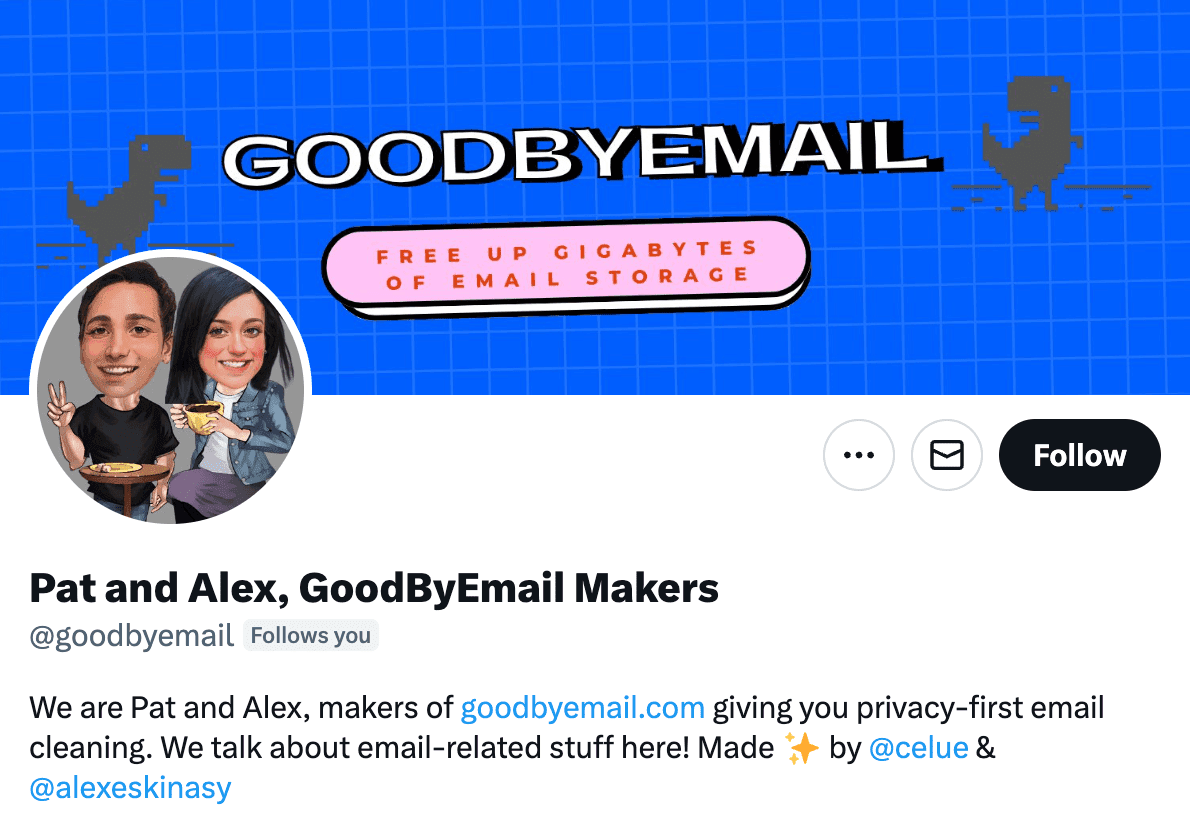5 Essential Considerations Before Using Online Email Cleaning Tools in
Plus, a Privacy-Focused Offline Solution.

While email cleaning tools may offer a tempting solution to the chaos of overflowing inboxes, it is crucial to carefully consider the potential risks associated with entrusting them with our sensitive data. Before granting them access to our digital lives, we must be aware of the possibility of unintended consequences, such as the loss of important communications or the unauthorized sharing of personal information.
Fortunately, there are safer alternatives available, such as privacy-first email cleaning tools. These tools prioritize privacy by design, eliminating the need for user logins or OAuth tokens. They operate solely on the user's device, ensuring that emails never leave the confines of their own hardware. Furthermore, these tools even offer the added benefit of offline operation, providing users with complete control over their data at all times.
With these advantages in mind, let us delve into the five essential considerations that must be taken into account before using online email cleaning tools.
1. Granting Inbox Access Beyond Login Credentials
When signing up for an online email cleaning service, you're invariably asked to share your email login credentials or OAuth tokens. On the surface, this may appear harmless, a mere technical requirement. However, upon closer inspection, it becomes evident that this is often the gateway to a broader range of permissions. The most concerning of these is the ability to modify, manage, and control your communications. This is not simply about granting access to your email; it is about entrusting a third-party service provider with the power to alter, organize, and oversee your digital interactions.
The most concerning is the authorization to modify your mailbox - 'https://www.googleapis.com/auth/gmail.modify' : All read/write operations except immediate, permanent deletion of threads and messages, bypassing Trash.
For those with a technical bent, the full Gmail Authorization Scopes documentation can be found here.
The Hidden Cost of Permissions: In our eagerness to declutter, how many of us truly examine the permissions we grant? Many users are unaware of the immense power they are handing over. It is akin to allowing someone not only to enter your home, but to rearrange the furniture, open your mail, go through your private photos, bank statements, and make decisions about what stays and what goes.
2. Mistakes with Massive Consequences
Reports on platforms like Trustpilot are riddled with tales of email cleaning tools gone awry. Vital emails lost, crucial communications deleted, memories erased. When you grant access to these tools, you're placing immense trust in their algorithms and decisions.
The Human Stories: Imagine the distress of a freelancer who lost a contract because the email from a potential client was deemed 'unimportant' or the anguish of someone who missed a reunion because the invite landed in trash. These aren't mere inconveniences; they can have significant real-world repercussions.
3. The Hidden Human Factor
While we often visualize algorithms and bots when we think of cleaning tools, there's a human element that's easily overlooked. Developers, data analysts, and even customer support might have access to your data. Every confidential business email, every personal exchange, every sensitive document—they're all potentially laid bare.
Risks behind the Screens: While companies may claim stringent data protection policies, human error is omnipresent. A misconfigured server, a disgruntled employee, or even a curious mind could pose threats to your privacy.
4. The Dark Side of Data Trade
As the saying goes, "If you're not paying for the product, you are the product." Some email cleaning tools monetize by selling user data. Personal information is a hot commodity in today's digital age. Your email, which houses years of communication, shopping patterns, preferences, and even financial details, is a treasure trove for marketers.
The Unseen Market: Hidden away from the public eye, data trade is a lucrative business. Your trust and the data you provide could very well be packaged and sold to entities keen on targeting you for their products or services.
5. Prioritize Privacy with Privacy-First Cleaning Tools
Privacy-first cleaning tools, like GoodByEmail, prioritize your privacy above all else. Unlike online tools that require access to your email login credentials, privacy-first tools operate directly on your computer. This ensures that your emails, many of which contain sensitive details, never leave your device. This approach provides a fortified layer of protection against potential data breaches and unauthorized access.
Unparalleled User Control: In addition to enhanced security, privacy-first cleaning tools also offer unparalleled user control. Unlike online tools that may make decisions for you, privacy-first tools ensure that every decision to delete or unsubscribe is entirely in your hands. You carry out actions directly in your email client, without the need to share any login details with third parties. This means no unexpected deletions or missed vital messages. You're in full control of your inbox, ensuring that your emails stay organized and private.
In Conclusion
In a world where data is king, email remains a critical form of communication. As we move into the future, it is essential to carefully consider the tools we use to manage our inboxes. While online cleaning tools may offer a tempting solution to inbox overload, they pose significant risks to our privacy. Before granting them access to your email, it is crucial to weigh the potential benefits against the risks.
If you are concerned about your privacy, there are privacy-first solutions available. These tools prioritize your privacy by operating directly on your computer, ensuring that your emails never leave your device. While they may not offer the same level of convenience as online tools, they provide peace of mind knowing that your personal information is not being shared with third parties.
Ultimately, the decision of whether to use an online or privacy-first email cleaning tool is a personal one. However, it is important to be aware of the risks associated with granting third-party access to your email. By taking the time to understand the implications of your choices, you can make an informed decision about the best way to manage your inbox.
Clean up your email inbox with way less effort. Check out GoodByEmail and discover why your inbox is out of storage. With GoodByEmail's help you can mass-delete emails from unwanted top offenders and unsubscribe from undesired mailing lists with a single click. It's the only truly secure option on the market, your emails never leave your device.
Quick plug: Clean up your email, privacy-first 💪
Isn’t it frustrating to constantly receive that "Your storage is 95% full" message?
Scared of using Email Cleaning, Unsubscribe or Declutter tools that snoop around your emails, even though they swear they are safe?
We got your back! If you haven’t tried GoodByEmail, it’s about time. Not only does it identify which email senders—many of whom you likely don’t care about anymore—are consuming all your storage space, but it also allows you to effortlessly unsubscribe from mailing lists with complete safety!
GoodByEmail uses a unique privacy-first approach by design: It simply cannot connect directly to your email provider. It does not require you to share any logins, credentials, oauth tokens, nor any sort of invasive permissions whatsoever. All the processing happens on your computer and no emails are ever uploaded to GoodByEmail's servers. Plus, you can even use it offline for maximum privacy!
Could you really trust other cleaning solutions available in the market, knowing they have direct access to your emails? Some services monetize by selling your data. Even if they claim it's secure, it raises concerns about the accessibility and potential misuse of your personal information.
GoodByEmail works with every email provider, you name it: Google, Microsoft, Fastmail, AOL, Yahoo Mail, iCloud, Office 365, Outlook, Zoho, Bluehost Mail, Namecheap Mail, Alibaba Mail, Alimail, Alyun, Gmail, Mail.com, Comcast Xfinity, Live, Hotmail, Yandex Mail, G Suite, MSN, Godaddy Mail, GoogleMail, and so many more.
You only need to make a one-time secure export of your inbox in mbox or .pst format, and GoodByEmail will find out who are the senders eating up your inbox storage space, without anyone else getting a look at your emails. Plus, you can also easily unsubscribe from those pesky subscription emails. It’s easy to do! Need help? This guide has a step-by-step.
Wondering where to find us?
Follow us on X:
